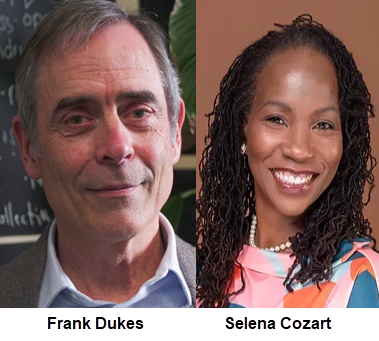Abstract
Excerpted From: Frank Dukes and Selena Cozart, Rethinking Systems Design for Racial Justice & Equity: “We Don't Want Any of That Neutrality” and Other Lessons from Mediating Race and Equity, 38 Ohio State Journal on Dispute Resolution 341 (2023) (63 Footnotes) (Full Document Requested)
 James Madison's Montpelier, as it is termed, was also the home of hundreds of enslaved people. On June 16, 2021, The Montpelier Foundation (TMF) Board of Directors voted to change their bylaws to establish parity with the Montpelier Descendants Committee (MDC), descendants of those enslaved at Montpelier, in the governance of the Foundation.
James Madison's Montpelier, as it is termed, was also the home of hundreds of enslaved people. On June 16, 2021, The Montpelier Foundation (TMF) Board of Directors voted to change their bylaws to establish parity with the Montpelier Descendants Committee (MDC), descendants of those enslaved at Montpelier, in the governance of the Foundation.
This decision was reached in part by mediation support from the coauthors of this Article, a white male, and a Black female, working on behalf of the Institute for Engagement and Negotiation (IEN) at the University of Virginia (UVA). For this Article, we initially proposed to address questions specific to the Montpelier case. Our work had concluded, the outcome appeared transformational, and given the agreement, we anticipated that limitations imposed by confidentiality for various conversations would not impede us from telling a powerful and welcome story.
However, by the time we began writing, the agreement had fallen apart.
Ultimately, the conflict was resolved in favor of the MDC and their supporters, as we explain further in the Article.
While it remains the case that our commitment to confidentiality within our mediator role limits what we can share about the process, there are lessons we can draw from our work at Montpelier without violating confidentiality. Furthermore, the co-authors have worked together for some fifteen years on several other projects involving truth and transformation in the context of race and racial equity. Rather than viewing the need for confidentiality about Montpelier as a constraint, this change in focus provides us an opportunity to take a broader look at this work. We embarked on a series of conversations intended to explore together the challenges that this work raises, lessons we have gathered from conducting that work together, and the implications of playing a third-party role. Our guiding questions have included:
• What changes have we seen over time in how institutions and communities are responding to conflicts and other challenges related to race?
• In what ways have we encountered white supremacy culture in our conflict and collaboration work?
• How have we, as a co-mediation team, navigated our relationship as well as our relationships to the key parties throughout different types of work? What have we learned while doing this work together?
• What lessons might be offered to the conflict resolution field concerning issues such as neutrality, power, race, and historical trauma?
[. . .]
What we have shared reflects responses to calls for support from those institutions and communities trying to navigate new realities and understandings. It also reflects our own efforts to initiate change, given the enormous need to address both systemic and individual problems. Our work is ongoing. We continue to learn, to stretch ourselves beyond the cultural boundaries and paradigms we inherited, to challenge ourselves and the conflict resolution field we are part of. The conflict resolution field must be prepared to understand the need for conflict, to grapple with the history and impacts of white supremacy culture, and to make a commitment to enact new conceptions of impartiality and independence.
A. Selena
I have been fueled by a passion for useful and impactful dialogue on the construct of race with the hope that structural and individual change would occur as a result. This passion has included the blending of the personal and professional. As a person of color in this society, it is clear to me how this work directly impacts me, my family, and my community. Part of the social contract of white supremacy culture is that people in the category of whiteness are often protected from consciousness of the impact of their racial assignment and may dismiss my passion as self-interested. I became aware of how this possibility was impacting how I showed up to the work and have been taking action to address that impact through both personal and professional development.
B. Frank
“Holding paradox” is as good a way as any of describing what we strive to do: to understand the deep penetration of white supremacy culture on so many aspects of our lives while bringing hope and energy to the work that needs to be done to liberate ourselves, or institutions, and our communities from its entrapment. As a white person, I must also be willing to play a leadership role in dismantling white supremacy culture while remaining accountable to those most harmed by it, yet another paradox. The work I have done in partnership with Selena, the development of our relationship, and the writing of this article are all done in service to this aspiration.
E. Franklin Dukes, Ph.D. is a Distinguished Institute Fellow at the Institute for Engagement & Negotiation, University of Virginia.
Selena D. Cozart, Ph.D. is an independent facilitator, trainer, and coach who focuses on Racial Equity, Diversity, and Inclusion and Strategic Planning.


